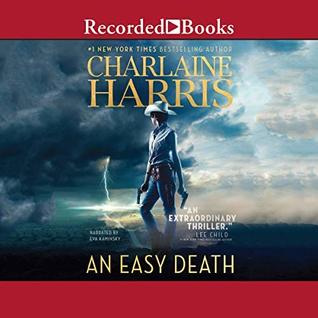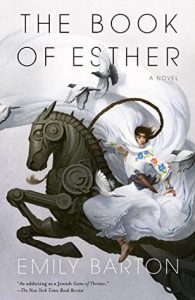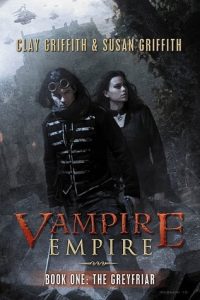
I borrowed an audio copy of Charlaine Harris‘ An Easy Death form the local library.
Description from Goodreads:
Set in a fractured United States, in the southwestern country now known as Texoma. A world where magic is acknowledged but mistrusted, especially by a young gunslinger named Lizbeth Rose. Battered by a run across the border to Mexico Lizbeth Rose takes a job offer from a pair of Russian wizards to be their local guide and gunnie. For the wizards, Gunnie Rose has already acquired a fearsome reputation and they’re at a desperate crossroad, even if they won’t admit it. They’re searching through the small border towns near Mexico, trying to locate a low-level magic practitioner, Oleg Karkarov. The wizards believe Oleg is a direct descendant of Grigori Rasputin, and that Oleg’s blood can save the young tsar’s life.
As the trio journey through an altered America, shattered into several countries by the assassination of Franklin Roosevelt and the Great Depression, they’re set on by enemies. It’s clear that a powerful force does not want them to succeed in their mission. Lizbeth Rose is a gunnie who has never failed a client, but her oath will test all of her skills and resolve to get them all out alive.
Review:
I would like to quote another reviewer here, who summarized this novel with:
Girl has guy. Guy is killed. Girl kills killers. Walks across the desert. Kills other people. Drives across the desert. Kills more people. Walks across the desert. Kills still more people. Has sex with frenemy. Walks home. The end. Nice cover. No point.
I agree with this entirely, except for the no point part. I do think the book has a point, even if it’s no deeper than your average action-based gunslinger book.
I liked Gunny Rose. I thought Harris created an interesting, if hard, world. I listened to the audio version, and I thought Kaminsky did a nice job with the narration. But it’s all just a little flat, a bit on the tedious slow side. Things happen, one after the other (just as Miki’s review suggests) and then the book ends. I just kind of shrugged, not hating it, but not impressed either.

 I received a copy of
I received a copy of 
 I borrowed a copy of
I borrowed a copy of